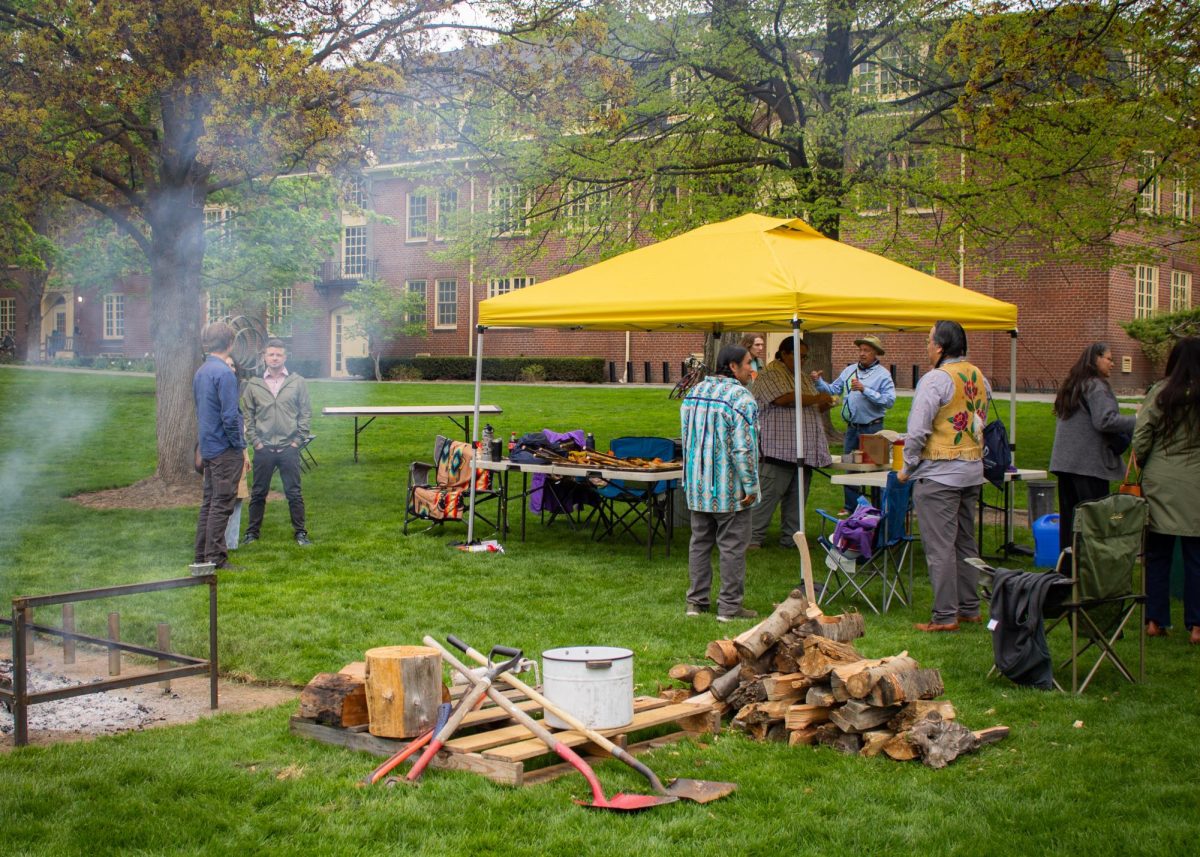
Zealous environmentalism and student activism meet head on in the international college campaign of divestment. The peak of this issue was reached at Whitman during environmental activist Bill McKibben’s speech in May of the last school year. Students became impassioned and involved in the campaign for Whitman to divest in its fossil fuel investments as over 200 students marched across campus. But then the school year reached its end. Students left Whitman and divestment similarly diffused, an inevitable difficulty that accompanies student activism.
“Right now is a natural period when a good chunk of people who knew about divestment have left and a new chunk of students have come and we have to spread awareness again,” said junior Divestment Media Leader Audrey Vaughan. “It’s a continuing action of informing people.”
Divestment is thus still an issue being fought through a passionate minority of dedicated students. It is an issue which they believe has a strong lasting power, and which can be reignited among the student population through education of the issue. And yet the public display of divestment seems to have waned. The posters, the marches and the sit-ins that appeared so prominently last year have diminished with seemingly nothing publicly in its place.
“I think it’s no longer at the front and center of campus awareness,” said sophomore Josh Rubenstein.
While this may be the majority student opinion, there is still much to be done within the political field of divestment. The student group spearheading the issue believes the next step remains with gaining the backing of the Board of Trustees.
“[The trustees have] seen campus issues come and go, and they think that they can ride this one out like they’ve ridden other things out, and so the onus is on us to do our work to get the campus, alumni, faculty and staff behind us so the trustees will listen with an ear towards actually doing something,” said junior Divestment Finance Researcher Collin Smith.
Divestment is an international campaign that has been progressively gaining traction on college campuses, with an effective six campuses divested in the United States. Being divested effectively means that zero of a college’s investments are in any of the top 200 coal, oil or gas companies. Ultimately, roughly 2 percent of Whitman’s investments lie in fossil fuels, and 0.3 percent specifically is invested in coal companies.
The formal international divestment campaign has a time cap of five years to achieve divestment. Whitman Treasurer and Chief Financial Officer Peter Harvey believes that for Whitman to become completely divested, it would take approximately 10 years or more because some of Whitman’s investments are long-term contracts. Keeping this in mind, Smith believes that communication with the administration should remain negotiable to prove that this is a lasting issue.
“To be honest, if I were in the administration’s position, I would be acting very similar to how they are right now,” said Smith. “We need to prove that this has staying power, and I really do believe it does.”
Vaughan is of the same opinion that divestment has the power to remain in institutional memory.
“It’s not just some fad. It’s something that we really care about and want to see through,” said Vaughan.
On April 14 of last year, a mild resolution was passed by ASWC that called upon the administration and the Board of Trustees to limit their investments in fossil fuel companies. It also suggested that a committee of Whitman students be created to further research divestment. The Board of Trustees turned down the resolution, and as of yet, nothing new has been pursued by students.
“I want people to think more broadly about actions they can take that would have more effects in the political sphere, because the financial world is being rocked by this too,” said Smith.
This school year Whitman hired a campus sustainability coordinator, Tristan Sewell. While Sewell supports the passions of the students and thus thinks divestment is an issue to be pursued, he believes that there are others issues that could be undertaken with greater priority.
“I do think there are other ways we can go about divesting which we aren’t really looking into as much, such as reducing our reliance on and purchase of the products that fossil fuel companies sell,” said Sewell.
Currently Whitman’s energy source is approximately 30 percent invested in the Blue Sky Renewable Energy Program, an organization that focuses on reducing emissions through use of renewable energy. Sewell believes greater investment in companies such as Blue Sky could raise our renewable energy source to at least 50 percent. This would not only increase our energy source to more sustainable methods, reducing environmental impacts, but also improve the market for renewable energy companies. Some students agree that the campus itself should focus less on divestment and more on being as environmentally sustainable as possible.
“In general, divestment is a good thing, but at Whitman I think we should be focusing our energy on sustainability,” said sophomore Linnaea Weld.
Similar to the Blue Sky program, Sewell believes that more investments in solar energy companies could increase our action in renewable energy and reduce carbon emissions. These projects are more concrete and sustainable, in Sewell’s opinion.
“I think we need to prioritize [investing in renewable energy] because it’s more tangible, doable and visible than divestment, and I don’t think it’s particularly hard,” said Sewell.
Regardless of the method, Whitman is on a steady progression towards decreased dependence on fossil fuels. Divestment remains in the forefront of student activism on the issue of climate change, but forthcoming projects will also lead Whitman in a direction that is more environmentally friendly than the present.
“Whitman sells future and that future comes in the form of a bachelor’s degree. However, we’re not doing our best job to secure the physical future of this planet, and I think that’s a moral consistency problem,” said Sewell.
To become more involved with divestment, students can “like” the Divest Whitman Facebook page, and attend the divestment art exhibit that will begin on Tuesday, Oct. 22 from 7-9 p.m. in the Reid Campus Center Stevens Gallery. Additionally, Campus Climate Change (CCC), a club that is involved with the Divestment campaign, meets every Friday at noon in Reid 207.




















